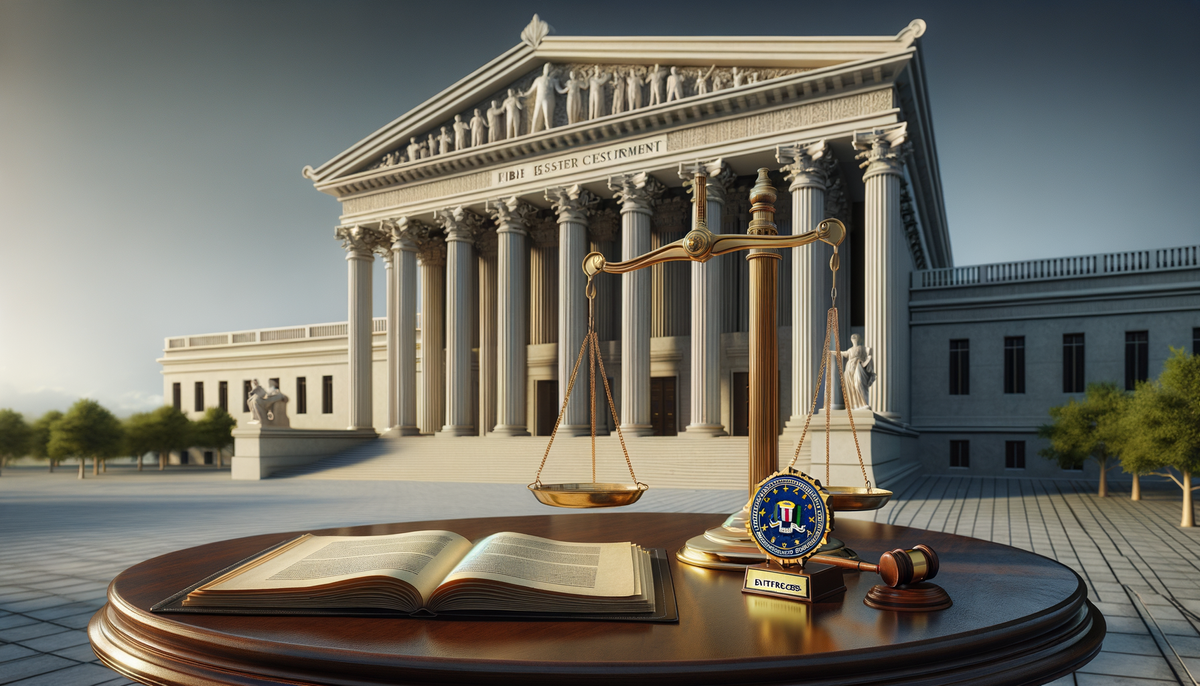FBI Supreme Court: Key Developments and Challenges
Explore the latest Supreme Court cases involving the FBI, focusing on pivotal issues like government immunity, due process, and state secrets.

FBI Supreme Court: Key Developments and Challenges
In an era where national security intersects with civil liberties, recent and notable Supreme Court cases involving the FBI have illuminated significant legal and societal issues. This discussion not only spans government immunity and surveillance but also the procedural due process rights of individuals in the United States. Below, we delve into these cases, drawing insights from recent events and court proceedings.
Understanding Recent Supreme Court Cases Involving the FBI
The term "FBI Supreme Court" has captured headlines, highlighting intense debates in the highest court of the land about the agency's actions and their legal ramifications. As we explore these cases, we gain an understanding of the legal frameworks that protect or challenge such actions.
FBI v. Fikre (2024)
In FBI v. Fikre, the Supreme Court heard the case of Yonas Fikre, a U.S. citizen who alleged wrongful inclusion on the No Fly List due to his race, national origin, and religion. The government removed him from the list in 2016, claiming the lawsuit was moot. However, the Supreme Court maintained that the case could proceed, reiterating that the government’s voluntary cessation of undesirable conduct does not moot a case unless it can assure non-recurrence of the behavior.
Wrongful FBI Home Raid Case (2025)
Another prominent case involved a wrongful FBI raid on a family home in Georgia, highlighting issues of government immunity and accountability. The Supreme Court's deliberations centered on whether such legal immunities should shield federal agents when errors occur, especially in the light of the Federal Tort Claims Act's narrow protections. The court appeared divided on this contentious issue, which could potentially reshape the accountability of law enforcement agencies. For more detailed coverage, you can consult C-SPAN’s report on the oral arguments.
FBI v. Fazaga
In FBI v. Fazaga, the Supreme Court unanimously ruled that the Foreign Intelligence Surveillance Act (FISA) does not supersede the government’s state secrets privilege. This judgment reaffirmed the power of the state secrets doctrine, allowing the government to withhold information in cases argued under national security interests, despite statutory claims under FISA.
Broader Themes in FBI-Related Supreme Court Cases
These cases underscore several critical themes:
- Government Immunity: They highlight the legal immunities provided to federal law enforcement officers and question their boundaries, especially in cases of mistaken law enforcement actions.
- Due Process and Civil Rights: The cases address procedural due process challenges, particularly how civil liberties intersect with secret government lists and surveillance activities.
- State Secrets Privilege: The reaffirmation of the state secrets privilege continues to play a significant role in cases involving intelligence and surveillance, illustrating the tension between transparency and security.
Implications for FBI and Legal Professionals
For professionals navigating the legal landscapes of FBI and Supreme Court interactions, these cases offer several takeaways:
- Legal strategies involving government immunity need to be meticulously crafted, considering the evolving interpretations of the Federal Tort Claims Act.
- Understanding the balance between state secrets and transparency is crucial for those defending or challenging government surveillance practices.
- Continuous legal education on civil rights and due process is essential to navigate individual liberties against national security interests effectively.
Relating to Our Expertise
At Newsomix, our expertise lies in deciphering complex legal developments and providing insights that empower informed decision-making in sectors affected by such jurisprudence. Our detailed analysis of these cases aligns with our commitment to inform and engage professionals in the FBI and broader legal community.
Call to Action
We invite you to explore further developments and analyses in the FBI Supreme Court arena by following our expert commentary and subscribing to our updates. Dive deeper into the nuances of these pivotal cases and stay ahead in your professional journey.




